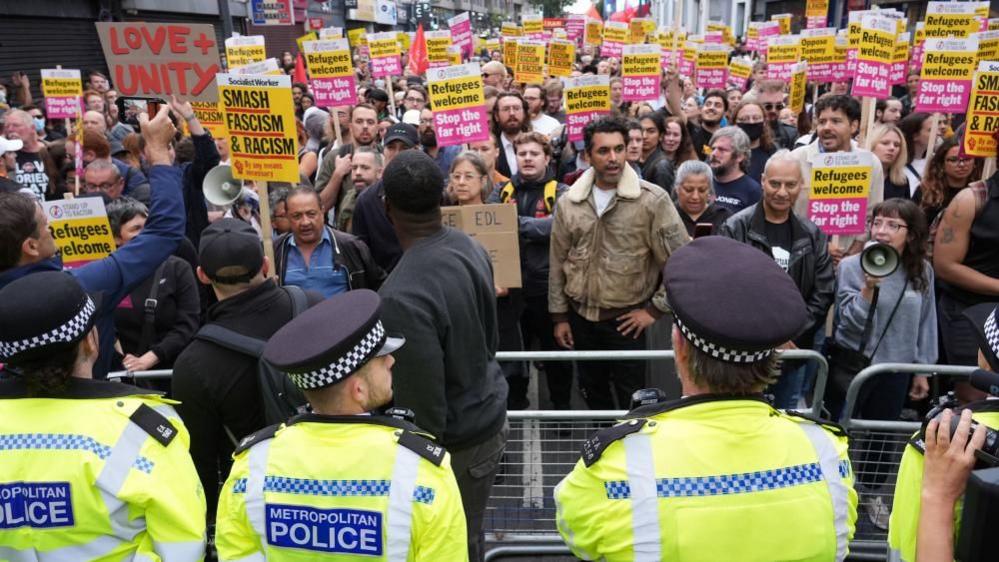Meet the men promising to protect English mosques facing threats
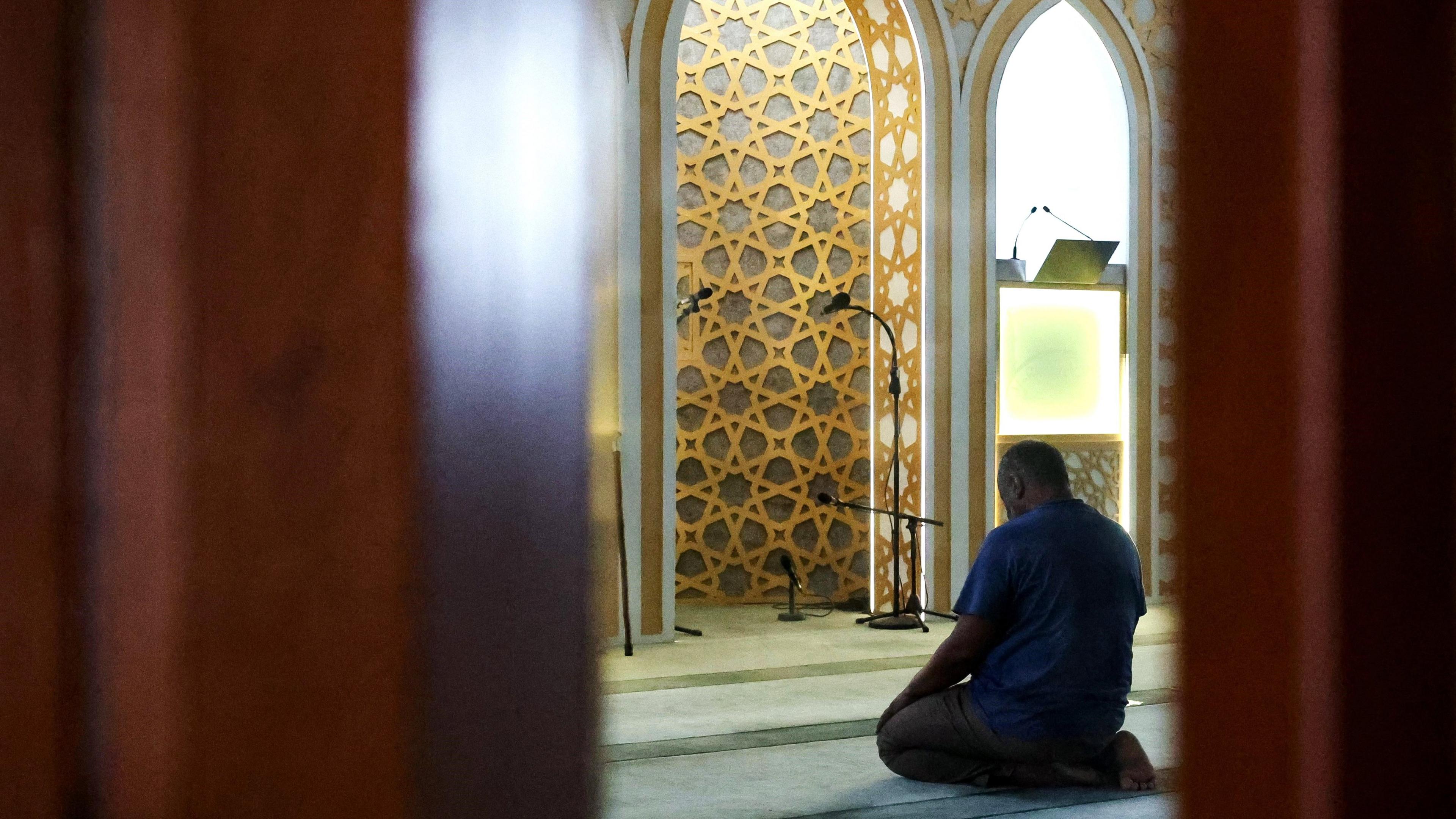
- Published
Mosques in at least four English cities were targeted in the recent far-right disorder - one was pelted with bricks, bottles and rocks.
Several community groups sprang up in response. One of them is “Protect”, which deploys people to places of worship that are potentially under threat.
Within 48 hours of being set up, more than 1,500 people had signed up in the north-west of the country, where the group is based.
Protect put out a call in Accrington on Wednesday, after a mosque asked for help - a viral video later showed pubgoers hugging some of the young men who had come to defend the building.
Though the mood has become much calmer in recent days, those running the group say it will continue as a means of remaining vigilant.
Given concerns about how they would be perceived, organisers were initially reluctant to speak, but agreed to do so anonymously.
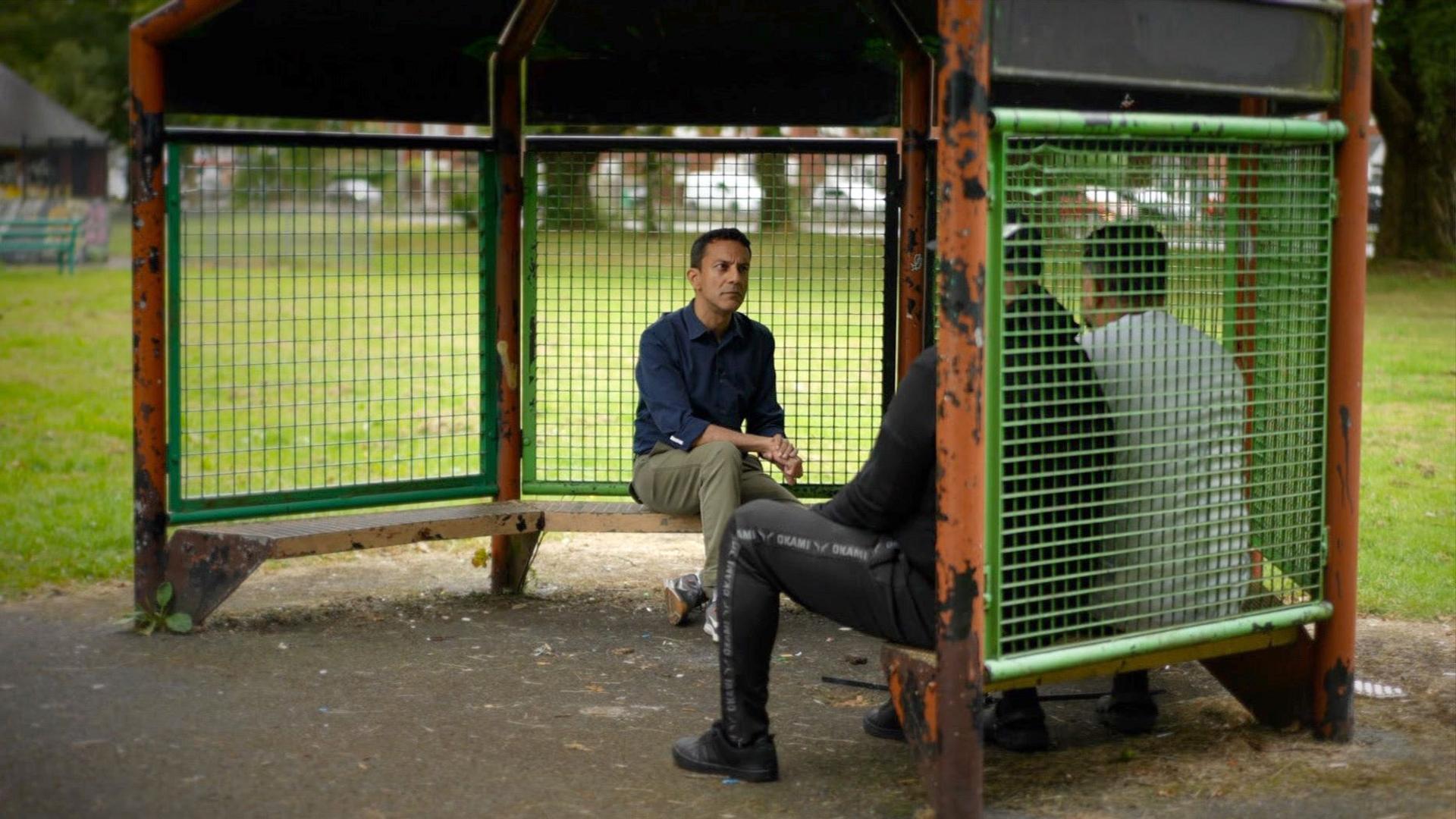
“The group is there to notify each other of problems in our areas so we can tell people to be careful. But if they do come towards our places of worship, the community will come out and we protect those places,” says the group’s founder.
He says that communities were caught out by the scale and suddenness of the trouble, and fear it could return any time, so part of the group’s function is to check the many rumours of further unrest to see if there is basis to them.
But when help is asked for by a mosque or community centre, he says the word will go out.
“We will go there to defend, not with weapons, but just physically standing in front (of places). If anyone is attacking the mosque, we won't allow it,” says Protect’s founder.
“If I've got family members inside that mosque and it's getting attacked, then by all means - even if I do get injured, by a brick or a firebomb or whatever it is - I’ll protect them,” he says.
But why not leave the protection of communities and mosques completely to the police?
“The police are doing an amazing job, and they’re trying their utmost to keep us safe, but they're already understaffed and they've got their hands full with these riots,” the Protect founder says.
“We've seen what happened in some other places, the police couldn't cover it, they weren't ready for it. Somebody needs to be there just by having a presence with the police as well,” adds one of those running the group.
We approached local police forces but they said they could not specifically comment on the group’s actions.
Earlier this week, in response to fears of threats to the mosque in Accrington, Lancashire Constabulary acknowledged concerns and promised they had a “robust policing response in place to tackle possible disorder”.
Muslim counter-protesters embraced by pub-goers in Accrington
The founder of Protect says he had been unhappy at incidents, unrelated to the group, in Stoke-on-Trent and in Birmingham where Muslim men had shown up with weapons, saying it was a central rule of Protect that people neither turn up with weapons or with face coverings.
He, and many other Muslim groups, also condemned an attack on a man who was punched and kicked outside a pub in Birmingham.
“We've not made (the group) to incite racial hatred or start riots, but to protect ourselves and be vigilant,” says the Protect founder, who says creation of the group has been purely driven by the fear of further violence, particularly among Muslim women, some of whom have reported having headscarves pulled off or having faced abuse or assault.
“We keep saying if there's a protest going on, don't go there. Don't be stupid. Let them protest. As long as they're not coming to our places to cause damage, don't put yourself where you don't need to be,” he says.
During the week we saw some of the group’s rules in action. One evening Protect had made its members aware that a mosque in Accrington had put out a call for help because of concerns of violence.
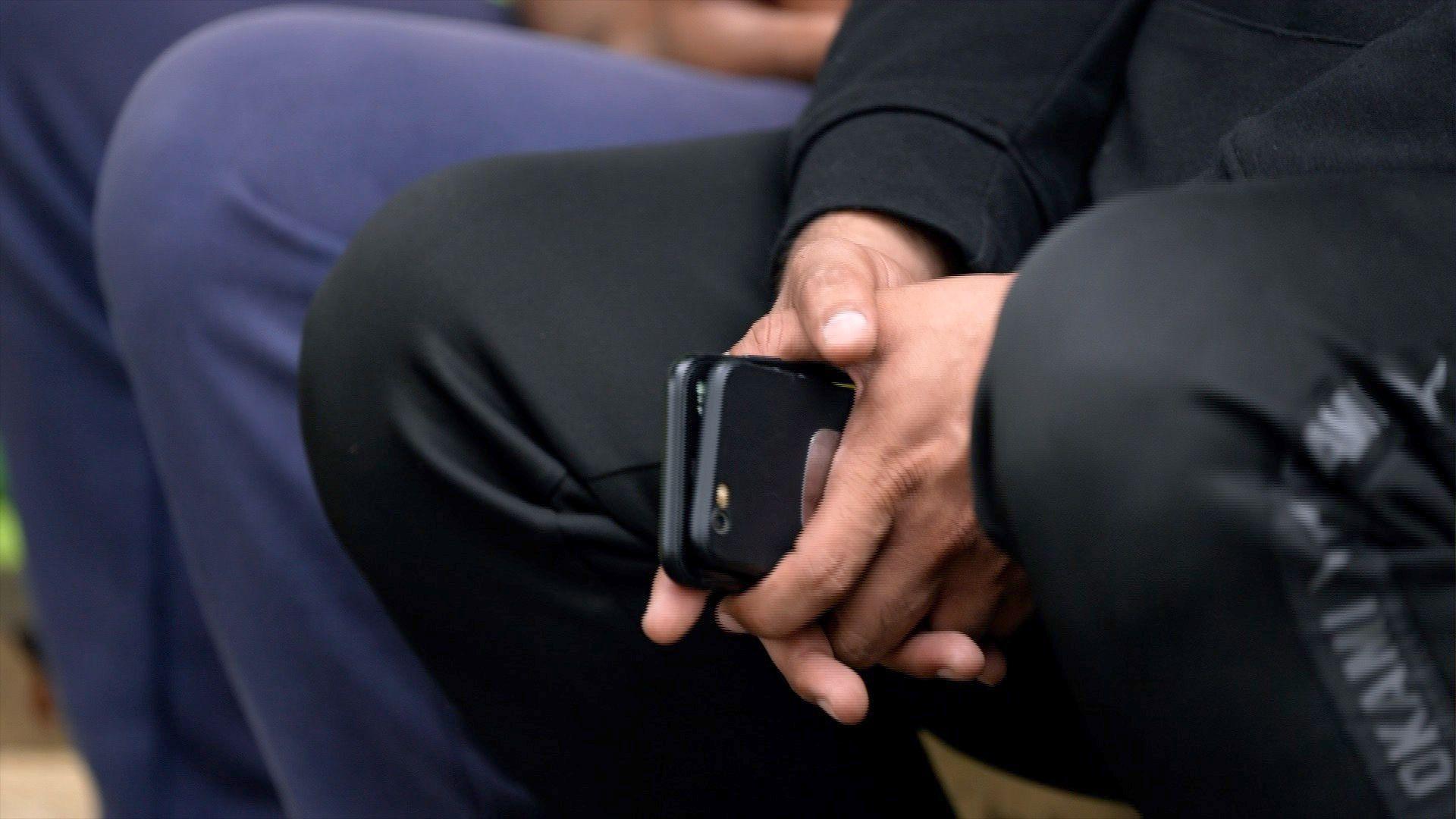
We saw dozens of young men gathered outside the mosque. They were repeatedly told by organisers not to wear masks or balaclavas, there was no evidence of any weapons as they stood alongside police.
In fact, the evening passed off peacefully, with some of the evening’s most viral video moments playing out in Accrington, as pubgoers came out to hug the young Muslim men as they walked away from the mosque when it was clear there would be no trouble.
The young men had been with the police throughout and had been chatting with officers.
“We don't want war, and we're not asking for all this to happen,” says Protect’s founder.
“But this country belongs to us as much to them. We were born here, our parents were born here. Some of our grandparents or great-grandparents fought in the World War II.
“So I think we've got as much right as anybody else to call this country.”
- Published7 August 2024
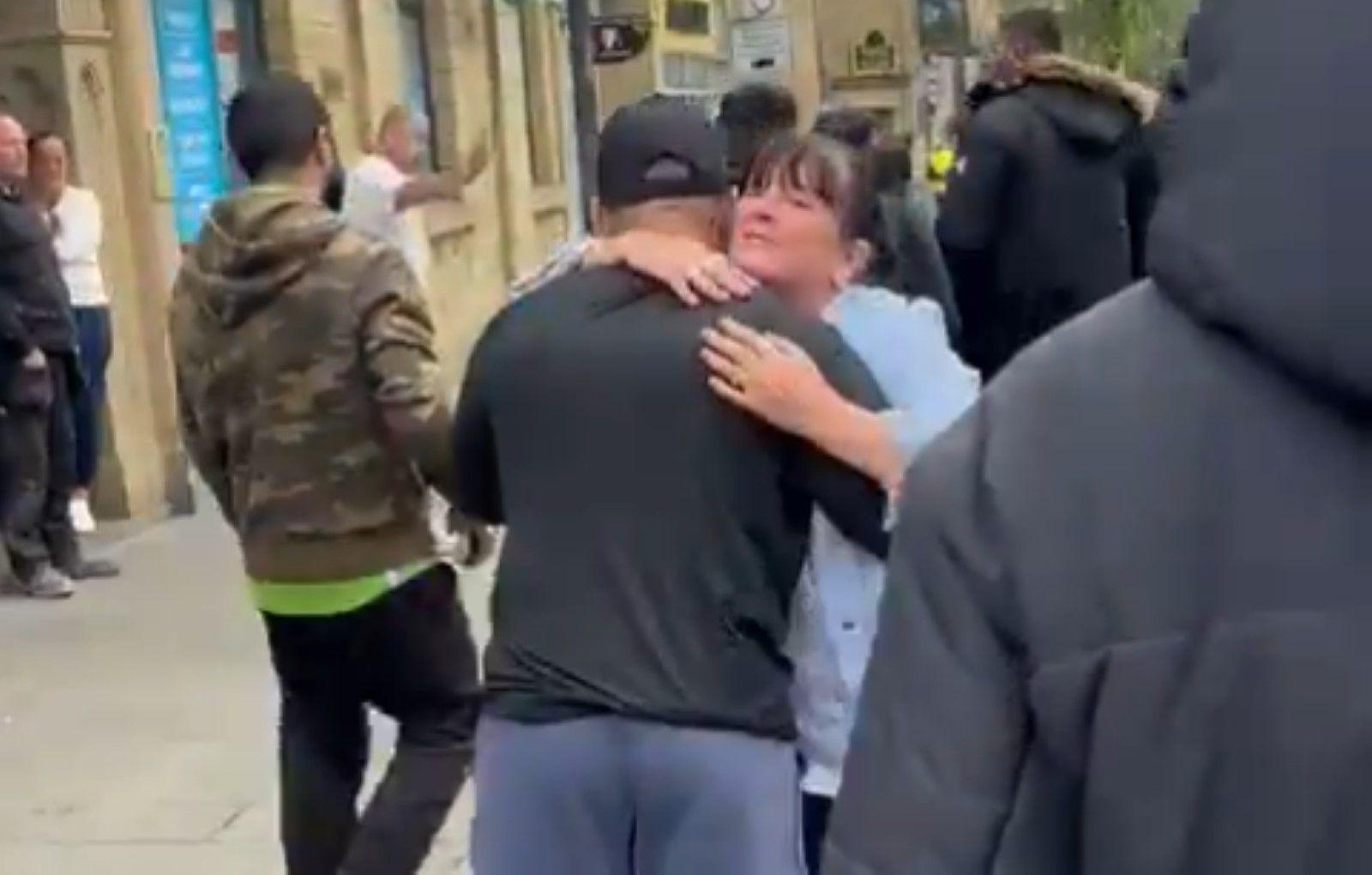
- Published10 August 2024
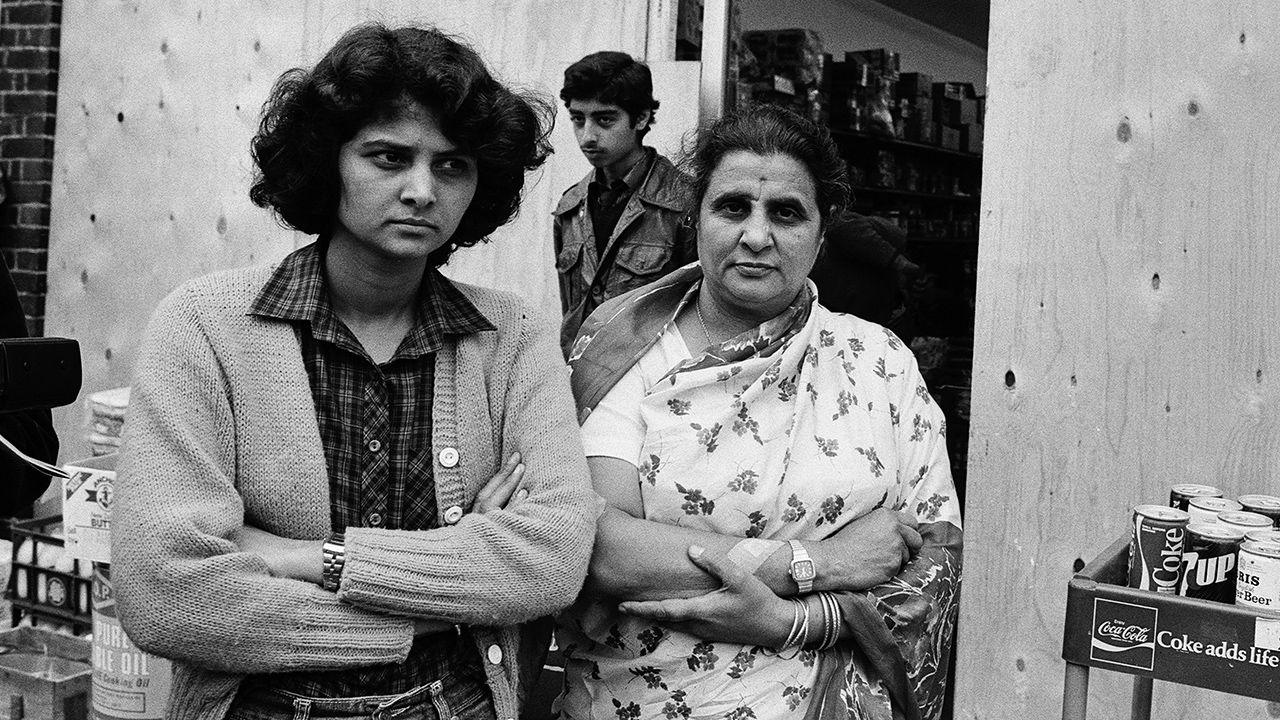
- Published9 August 2024
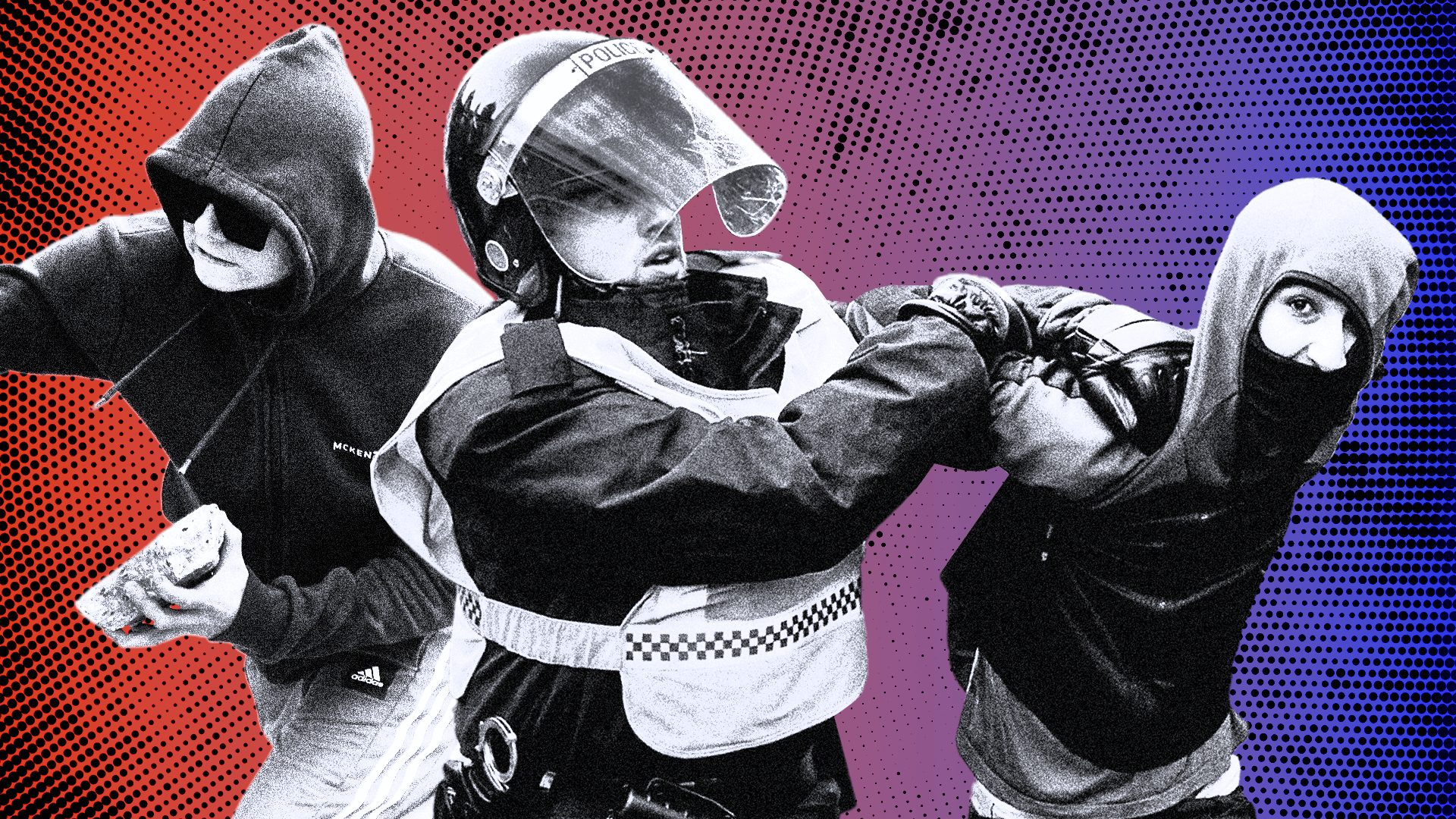
- Published8 August 2024
